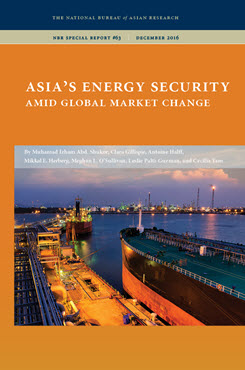Asia
A Geopolitical Beneficiary of the New Energy Environment
This essay examines the implications of the shift from perceived scarcity to abundance in global energy supplies for the geopolitics of Asia and the region’s interactions with the broader international scene.
EXECUTIVE SUMMARY
MAIN ARGUMENT
In considering the impact of the new energy environment on Asia, much analysis has focused on the consequence of low energy prices and the resulting economic implications. Although these issues are important, a world in which energy is more abundant also has profound effects on how Asian countries interact with one another and with the rest of the world. There are three particular areas in which the geopolitical landscape has changed considerably in light of the new energy environment. The energy situation has (1) undermined Russia’s pivot to Asia, (2) lubricated a broader Chinese foreign policy that goes well beyond the pursuit of scarce resources, and (3) tied Asia and the Middle East more closely together in ways that will require greater Asian engagement in the volatile region.
POLICY IMPLICATIONS
- While Asian countries will inevitably continue to seek to diversify their energy sources away from the Middle East, they should also come to terms with the notion that their active engagement—including in the domestic affairs of some countries—will be required to achieve regional stability and energy security.
- Russia and China will continue to develop a more robust energy relationship, but the new energy environment will help ensure that this relationship is more transactional than strategic in nature.
- The particular trajectory that the new energy environment takes will have implications for China’s deliberations about whether to further integrate itself into the current international order or try to remake the order entirely to better suit its interests.


